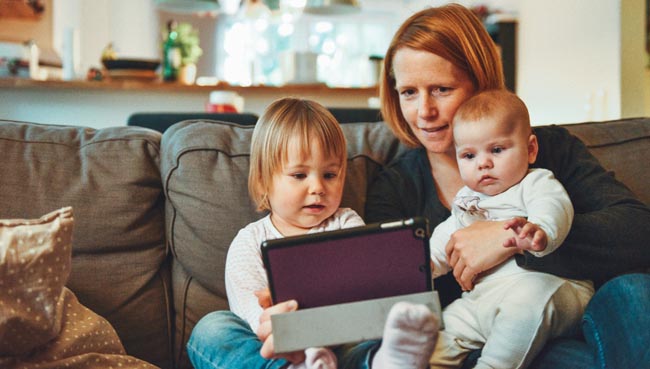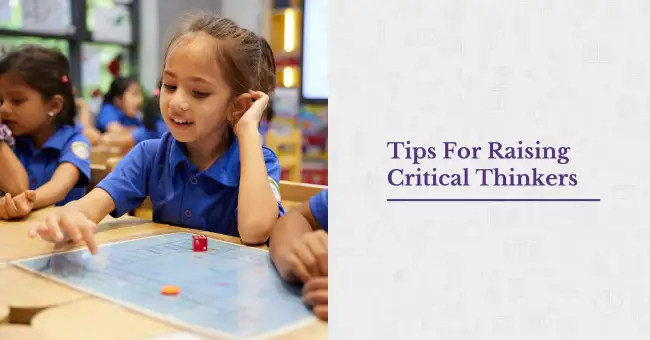
This quote resonates with me as my perceptions and behaviour as an adult have been led by my inner voice. My inner voice has been shaped by my learning and concept building from the informative and emotional conversations I’ve had with my parents during my childhood. So is the case with all readers, isn’t it?
But are we doing the same with our children? Are we helping them build a constructive inner voice? Are we helping them create a positive self-image by communicating with them at deeper levels? Talking with our children should be an important daily event. But, as parents, we are held up with busy schedules. So we find it convenient to keep the conversation with our children light and quick so that we can move on to the next thing on our “to-do” list. This has become a harsh reality. Despite spending hours with our child under the same roof, we can seldom squeeze out some quality time to spend with them.
Research suggests that the best parent-child relationships are characterised by positive communication and interaction during the early years. When parents stay in touch with children through attention and conversation, children might be less likely to act out or behave in ways that create conflict or require discipline.
Here are some ways of effectively communicating with our little ones:
1. Make Eye Contact
Every time you talk to your child or when your child is talking to you, maintain eye contact. Maintaining eye contact indicates that you are active and attentive in the conversation.If you cannot hold eye contact, get on your knees or sit down, so your eyes are on the same level as his. This will encourage open and transparent communication.
2. Acknowledge Your Child’s Feelings
When you acknowledge someone’s feelings and emotions, they feel accepted and secured. This is precisely what happens when you empathise with your children. When you build empathy for your children, they themselves learn to be more sensitive and accepting towards other peoples’ feelings and emotions. Moreover, just by acknowledging their feelings, you as parents, are teaching them that their feelings are real and valid.3. Rationalise The Correction
Having grown up in a joint family, I had many correctors and advisors around. Every time I would make a mistake, I was loaded with comments like ‘ stop behaving like this ‘ or ‘this is not how it is done’. Just asking to stop behaving in a particular manner is not enough to instil a new behaviour. What is essential is that a calm explanation should also be provided for it. Giving a composed explanation will help your child understand the implications of their behaviour for others (e.g. if your child teases another child for wearing glasses, explain to your child that wearing glasses helps the other child to see well. Also, remind your child kindly that teasing can hurt others feelings).4. Teach Them How To Say ‘No’ Firmly
While parents say a ’no’ firmly to a child’s unrealistic request or unacceptable behaviour, it is of paramount importance to educate your children about doing the same in situations that make them uncomfortable. You should let them know that every ‘no’ is not a negative answer. Instead, it is more like a choice made to ensure their own safety and security.5. Use More “Dos” Than “Don'ts”
“Don’t hit your sister”, “Don’t sit like that” don’t you say this too often to our little ones? You, as a parent know what you don't want to happen, so you lead in with a “don't" statement. Even though this statement would convey the message rightly of not doing a particular thing, but the downside of “don't" statements is that you fail to promote the positive behaviour you want to see. Therefore you are more likely to reinforce the behaviour you don't want. Instead, you should use more respectful “do” statements. Swapping your “don'ts" for “dos" can look like this: “Play gently with your sister”, “Please keep your back straight while sitting"6. Use Kind Words
Kind words create a respectful relationship and better communication with your child. It is true that children who are spoken to with appreciation and respect also have better self-worth, which allows them to thrive. On the contrary, unkind words that shame or ridicule them leave them feeling disliked. Some examples of kind words are:“Thank you for helping me with the dishes."
“You did a good job of getting your room clean."
“That really makes me feel good."
“I love you."
7. Be An Emotional Coach
They say that the ability to listen is as important as the ability to speak. In doing so, you can develop an emotional bond essential for establishing and maintaining mutual respect. Effective emotional coaching helps children understand the emotional fluctuations of life. Children who grow up in families that spend time talking about emotions are more academically successful, have better friendships, fewer infectious diseases and can handle difficult social situations more effectively than children whose families do not talk about feelings.Lastly, the world can be overwhelming for our children. By communicating regularly with children, you can help them create a positive view of themselves and the world.
Good communication is the heart of more harmonious homes and is the key to a healthy relationship with your child. It provides a place your child can thrive and grow from. Good communication with your child forms the basis of good communication with other people as your child grows into an adult.
Keep working on these communication skills. It can be hard at first. But like all skills, practice helps. When you slip up, repair it with your child and start afresh.
Written By: Henal Banwat
Counsellor, Learner Support Centre
JBCN International School Borivali











